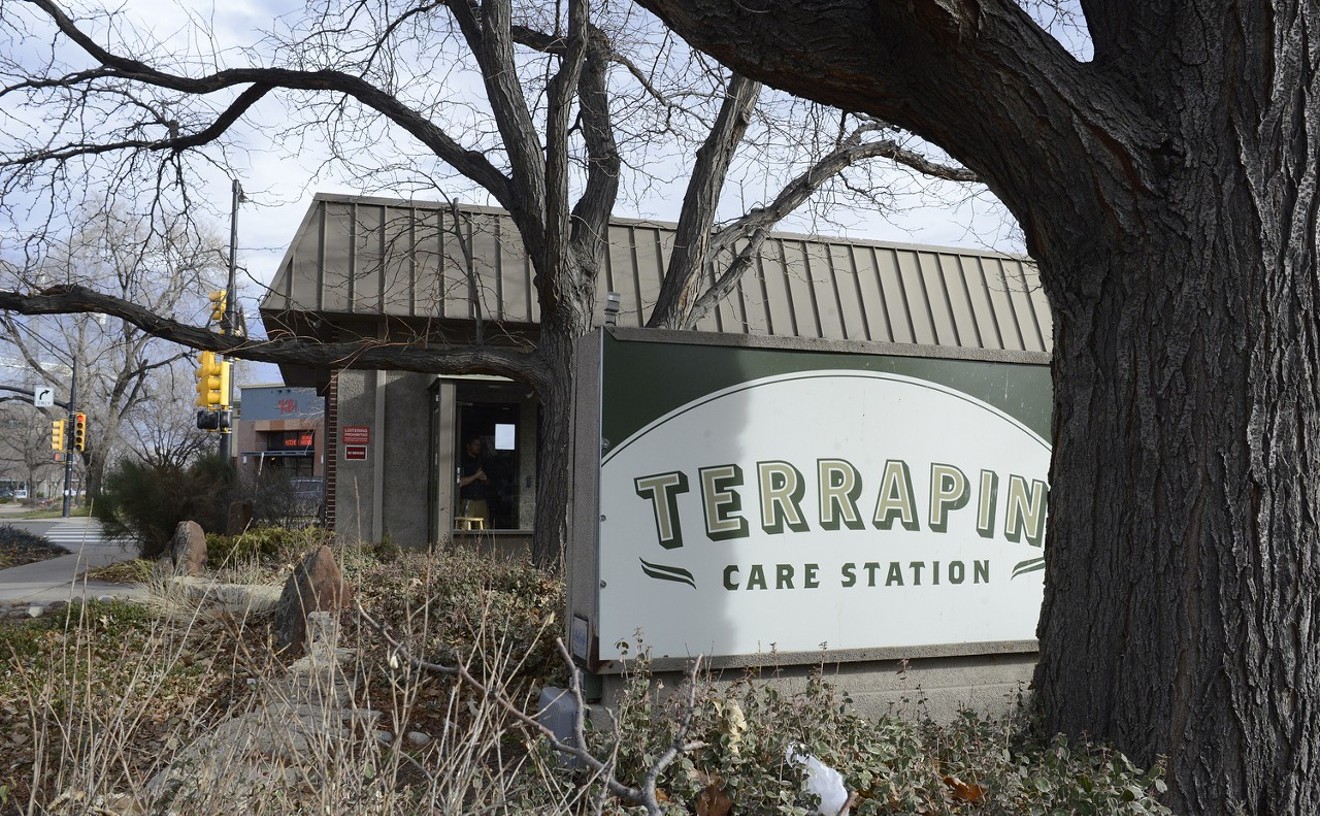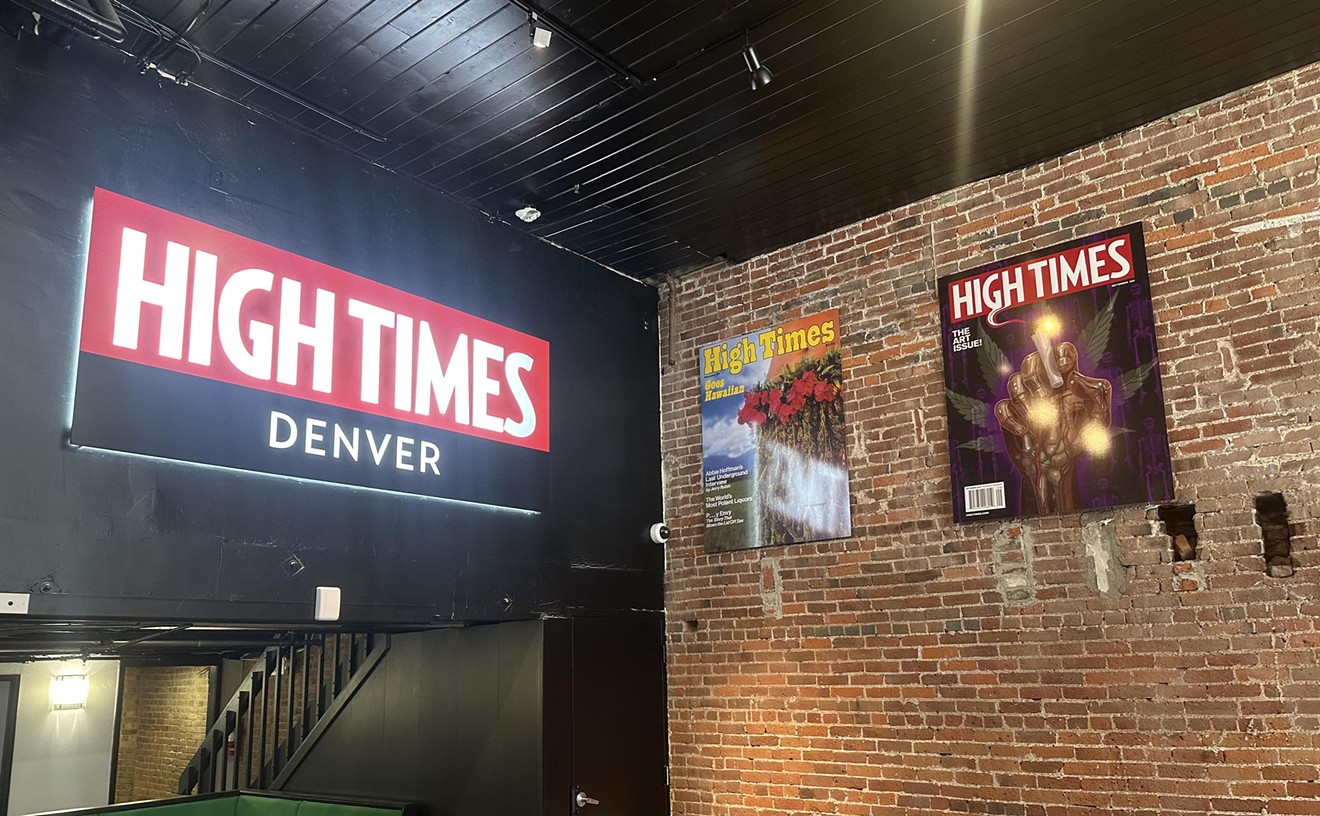You could order pot to your doorstep like a pizza in the near future now that Colorado lawmakers have approved a bill permitting marijuana delivery. The measure, which still has to receive Governor Jared Polis's signature, just passed the state Senate May 1, but wasn't without controversy both inside and outside of the pot industry.
Bills attempting to legalize marijuana delivery had failed several times over in past years, but House Bill 1234 was able to make it through the State Legislature right before the 2019 session ends May 3. If approved by Polis, it would allow medical marijuana delivery by the beginning of 2020 and recreational deliveries by 2021. The state Marijuana Enforcement Division would implement regulatory and heightened security requirements for drivers. However, town and country governments can ban the practice within their borders, and only residential addresses would be able to receive deliveries.
The bill's prime sponsors, state representatives Alex Valdez and Jonathan Singer, say they introduced the bill to curb illegal pot delivery services currently offering themselves to unwitting consumers on social media and classified websites like Craigslist, as well as increase access to medical marijuana patients with mobility challenges.
But on top of the usual opponents in law enforcement and anti-marijuana groups, a sizable part of the industry doesn't think this legislation protects its current players, split over language that allows third-party deliveries and online ordering after the first year. Factions of owners of stand-alone dispensaries argue that the bill could hurt small businesses by pushing them out of online and foot traffic, while other small pot business owners believe third-party delivery should be included from the start, because they can't afford their own delivery drivers.
Fears of tech-savvy companies and an Amazon-like takeover were cited in past legislative hearings, with worries of large warehouses storing vast quantities of marijuana products as consumers stop frequenting dispensaries. Despite several layovers to the bill as industry stakeholders negotiated, those fears still exist. Tim Morgen, community relations manager for dispensary chain Bgood, says using a third-party website to deliver marijuana without a retail experience will make dispensaries "fulfillment centers" by limiting their contact with the people using their products.
"We've been forced to invest in our communities — which is a good thing, don't get me wrong -— and get a brick-and-mortar location, get up to building code and hire people to work in these stores," he explains. "Your location doesn't matter anymore by allowing delivery. If you're taking orders through them, then they're the store. They have all the information about you, and they have the relationship with you."
Proponents of the bill have labeled those concerns under a protectionist mindset, however, and believe that allowing delivery and online ordering is a natural progression for an industry that wants to be treated like other retail businesses.
VS Strategies government affairs vice president Jordan Wellington helped draft the bill, and believes the measure was more about consumer and patient access than protecting dispensaries.
"It's not just a matter of convenience, but also access for patients, and parents who can't bring their kids to a shop," he says. "I think for cannabis consumers, it's a step toward equal treatment under the law."
The governor hasn't expressed an opinion on marijuana delivery, but Wellington is optimistic for future delivery, feeling much better about the bill's chances than he would've last year, when previous governor John Hickenlooper vetoed three marijuana bills in two days after the 2018 legislative session ended.
"One would hope we're not going to repeat last year's blood bath," he says.
[
{
"name": "Air - MediumRectangle - Inline Content - Mobile Display Size",
"component": "12017618",
"insertPoint": "2",
"requiredCountToDisplay": "2"
},{
"name": "Editor Picks",
"component": "17242653",
"insertPoint": "4",
"requiredCountToDisplay": "1"
},{
"name": "Inline Links",
"component": "18838239",
"insertPoint": "8th",
"startingPoint": 8,
"requiredCountToDisplay": "7",
"maxInsertions": 25
},{
"name": "Air - MediumRectangle - Combo - Inline Content",
"component": "17261320",
"insertPoint": "8th",
"startingPoint": 8,
"requiredCountToDisplay": "7",
"maxInsertions": 25
},{
"name": "Inline Links",
"component": "18838239",
"insertPoint": "8th",
"startingPoint": 12,
"requiredCountToDisplay": "11",
"maxInsertions": 25
},{
"name": "Air - Leaderboard Tower - Combo - Inline Content",
"component": "17261321",
"insertPoint": "8th",
"startingPoint": 12,
"requiredCountToDisplay": "11",
"maxInsertions": 25
}
]












